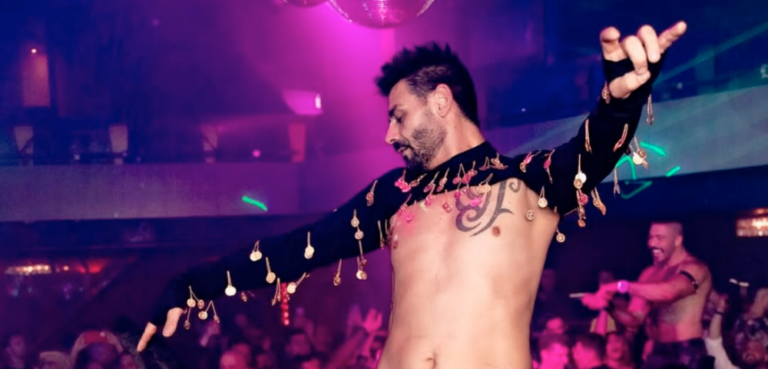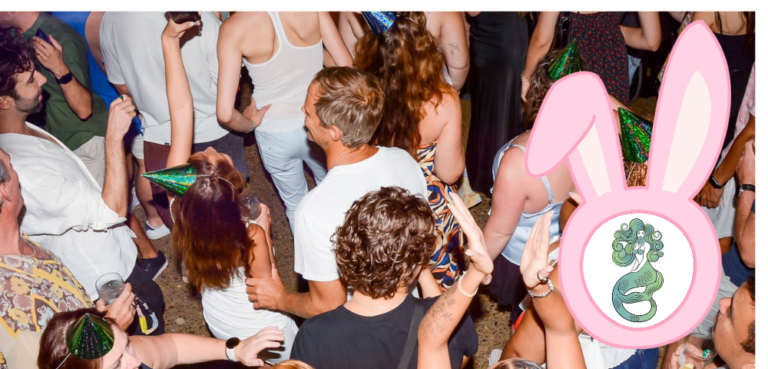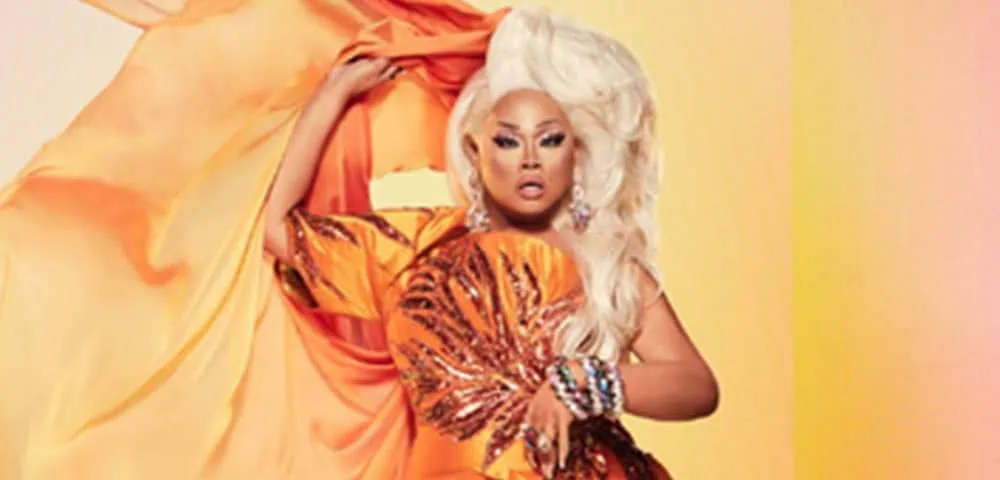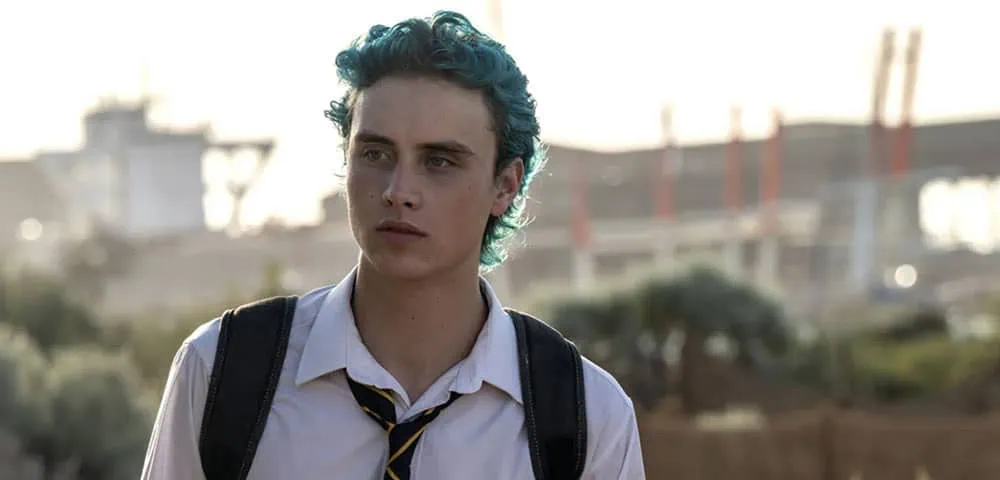
Controversy Surrounds Asia’s First Gay Games In Hong Kong

As the Tokyo Olympics draw to a close, the gay sporting world will be keeping its eyes firmly on East Asia when the Gay Games 2022 head to Hong Kong next year.
As sports fans from across the globe tune into the Summer Olympics in Tokyo, the organisers of the 11th Gay Games, scheduled to open in November 2022 in Hong Kong, are hustling to ensure the event runs without a hitch. However, fervent opposition from some Hong Kong legislative members as well as pro-democracy activists, is making the mission of staging the first Gay Games in Asia an increasingly challenging task.
Hong Kong Legislative Council at Odds Over Welcoming Gay Games
Within Hong Kong itself, the Games have become a lightening rod for the homophobic rhetoric of some Legislative Council members such as Junius Ho, long a divisive figure in Hong Kong politics. Ho said welcoming the Games would be the same as accepting “dirty money,” and while he claimed to “respect one’s sexual orientation,” he added, “whatever you do in your room, it’s your business. But if you do it in public, it’s disgraceful.”
Ho’s fellow LegCo member Priscilla Leung, meanwhile, claimed the Games threatened to “tear apart society.” In response, Chief Executive Carrie Lam reinforced her support for the Games saying, “We have no problem with that sort of spirit and purpose of the games,” referring to the Games mission of ‘Unity In Diversity.’ LegCo member Regina Ip, claimed the opposing members were “out of touch” with an increasingly liberal and accepting public, and called on the government to offer more support for the Games in securing venues which has been an ongoing issue for organisers.
The Games “haven’t experienced ‘significant political opposition’ as such,” asserts Kitty Mak, Partnership Manager for the Gay Games. “Those lawmakers who expressed opposition to the Games were a minor few, and their views were not shared by the majority of the public, or even their colleagues in the Legislative Council. Our partners in the government departments and private sector have been amazing and fully supportive of the Games.”
Pro-Democracy Activists Outraged Over Selection of Hong Kong
Concerns over political stability and freedom in Hong Kong continue to plague the Games organisers who are having to ward off widespread criticism about holding the Games in a politically volatile environment. Adam Nelson, Senior Advisor at the Asia-Pacific National Democratic Institute for International Affairs, is a vocal detractor of the choice of Hong Kong, calling it “a police state.”
“The Gay Games claims its mission is ‘to promote equality.’ That is a problem in Hong Kong, because Beijing has imposed strict new laws that ban freedom of speech, freedom of assembly, and practically erased rule of law. Among others, LGBTQ activists are currently in prison for participating in peaceful demonstrations for democracy or simply having an opinion counter to that of the government’s official line,” Nelson says.
Human Rights Watch, China Director, Sophie Richardson says that “given the Hong Kong authorities rapid criminalisation of whatever they want under the new national ‘security’ law, we sadly have some of the main concerns about freedom of expression and freedom from arbitrary treatment in the context of the Gay Games in Hong Kong that we have about the 2022 [Winter] Olympics in Beijing.”
Richardson calls the National Security Law “vast and vague,” and says, “Nobody really knows what is protected and what isn’t.”
“Since the implementation of the National Security Law in Hong Kong in July 2020, more than 120 people have been arrested,” says Joey Siu, a Hong Kong-based pro-democracy activist. “Among the list are Ray Chan, the first openly-gay Hong Kong, leading LGBTQ+ rights activist Jimmy Sham, progressive LGBTQ+ supporter and activist Tiffany Yuen and so many more pro-democracy activists who have been the most vocal voices in Hong Kong for the LGBTQ+ community.”
“When freedom and human rights itself are undermined, rights of the LGBTQ+ community are inevitably encroached too. The Games are all about promoting civil rights and it doesn’t make sense that [they happen] in Hong Kong – a place where the government jails pro-democracy voices, including leading LGBTQ+ rights advocates, for defending freedom and basic human rights,” Siu says.
Raymond Chan, who continues to languish in prison following his arrest on 6 January 2021, was the first openly gay member of the LegCo and a strong proponent of Hong Kong hosting the Games. Chan told the Nikkei Asian Review that welcoming the Games would be “in line with the image of an innovative and creative hub that the government wants to promote. The government has poured [in] millions of dollars to promote Hong Kong overseas, and squandering this opportunity [would] disappoint many.”
Life Increasingly Difficult for LGBTQI Community in Hong Kong
The arrests of pro-democracy leaders has made life more difficult for the local LGBTQI community, says Waiwai, a member of the Hong Kong-based LGBTQI activist group Rainbow Action. “Now all of them are gone so we feel less protected. If we face a problem, we have no one to turn to to solve our problem or to help us deal with some difficult situation.”
The encroaching spectre of the authoritative power of Beijing over the region is deeply troubling for the LGBTQI community in Hong Kong. Waiwai says she fears for the future. “The situation is changing every day and we don’t know what will happen… everyday when I wake up, I just wish that we have no more bad news.”
Waiwai also refers to China’s recent suppression of dozens of LGBTQI WeChat accounts as proof that the community is facing an ominous and persistent menace. “I cannot say that we are fine or will not be in danger in the future,” says Waiwai, who says the community is “prepared for the worst.”
“The National Security Law in Hong Kong is for all people, not only Hong Kong people,” warns Waiwai. “If someone is not a Chinese national they can still be seen as criminals as they are not respecting national security ideology. If an Australian came and said ‘Taiwan is not China,’ you could be put in jail even if you are not Chinese.”
Taipei Times has reported that Taiwan had announced that they would not be sending a team to the Gay Games as “there’s no guarantee of a player’s personal safety because under Hong Kong’s National Security Law, arrests can be made under any excuse.”
“Our community has to live its values,” says Adam Nelson. “If we believe in justice, equality, and human dignity, then the choice of where to host the games must include a scoring of human rights and democracy. Hong Kong fails that test.”
“Asia is full of places that embrace equality – Taipei, Seoul, and Tokyo… personally, I think Taipei would be the ideal choice,” says Nelson. “I passionately believe that games should be held in East or Southeast Asia, just not in a place that stands for authoritarianism.”
William Yang, East Asia Correspondent for DW News, says, “The government is genuinely trying to use the games as a way to wash away most of the negative press coverage about the city that has begun since 2019. This is one of the very few opportunities that they can try to capitalise and push back against the predictions that Hong Kong is now becoming less liberal and free than before. What the government has been enforcing in the name of national security has already made the international community aware of its real intention, which is to tighten control and push the city even closer to China’s orbit of control.”
Gay Games Builds Support Despite Criticism
Brian Wong, the Founding Editor-in-Chief of the Oxford Political Review, points out Hong Kong has “had an incredibly difficult few years; political turmoil, social unrest and economic downturn induced in part by the protests and the subsequent reactions to the protests and also the COVID pandemic. One of the best means of resuscitating or reviving Hong Kong’s brand as a tourist destination is to highlight that we are a progressive and cosmopolitan city… Not only would having the Gay Games be a significant image booster but also it would also be a key to economic revival.”
“Hong Kong should serve as a hub for Queer representation and diversity which could well be a critical feature of not just Hong Kong but also the rest of China,” Wong says. “If Hong Kong could serve as an exemplar of a moderate, sensible, pro-LGBTQ+ hub within China they could also foster spillover benefits for the rest of the country.”
Eric J. Dolan, one of the members of the Gold Medal winning softball team at the 2018 Games in Paris, is excited to be participating again in Hong Kong. “I was probably a little nervous with the political issues there,” says Eric, “but I hope the exposure of the Gay Games to a new part of the world will only help push toward freedom and acceptance. And I think Hong Kong will be a great host for us. It should be a good opportunity for a lot of athletes to participate who haven’t had a Gay Games in their corner of the world before, and for many others to experience a new culture.”
Advocates say Hosting Games Will Benefit Local LGBTQ+ Community
“It’s important for us to show presence in areas where our community members suffer more than in other parts of the world,” says Shiv Paul, Vice President of External Relations for the Federation of Gay Games. “We feel – and know from experience – that our event can lead to more inclusion and acceptance… Hong Kong was selected in 2017 (over Guadalajara, Mexico and Washington DC) when the political climate was quite different to today’s and just because that environment has become more challenging is not a reason to pull out. In fact, one could argue this provides more reason for us to go there.”
Jessica Waddell-Lewinstein Kopp, the daughter of the Founder of the Gay Games, Dr Tom Waddell, agrees with Paul and says, “When Hong Kong was selected in 2017, no one could have foreseen what has happened in the past 18 months in terms of health, social justice and politics. Just because things have become more challenging doesn’t mean we abandon our commitments to our friends and family in Hong Kong.”
“The LGBT community in Hong Kong now has as many, or more, protections and rights than we did in the US for the first 20 years of the Gay Games,” says Mark Thomsen, an organiser of OutRunners Hong Kong, and co-chair of Pride Run Hong Kong. “I see the political discussion as being a distraction for the huge change and conversation this will force regarding the Pride community in Hong Kong. Gay Games Hong Kong will be the most visibility that the community will ever have had in most of Asia and certainly in Hong Kong and China. The opportunity that would be lost by cancelling them because people disagree with Hong Kong and China’s current political situation, would be the opportunity to fast forward Pride acceptance by years.”
“Having the Games in Asia for the first time will provide an opportunity to those who weren’t able to take part before to do so now, says Natalie Truong, the Strategic Marketing Director for the Hong Kong Gay Games. “We know that for many participants this will be a once-in-a-lifetime, unforgettable experience that gives them a sense of belonging and empowerment.”
While the debate is likely to rage on as the opening of the Games move closer, it is apparent there are no easy answers. The Games undoubtedly offer the LGBTQI community in Hong Kong an unprecedented opportunity for visibility and increased acceptance. However, moving forward with the Games does come with a price and that is to downplay the historic struggle for democracy and freedom in Hong Kong, a struggle which inevitably will continue, long after the Games are a distant memory.









